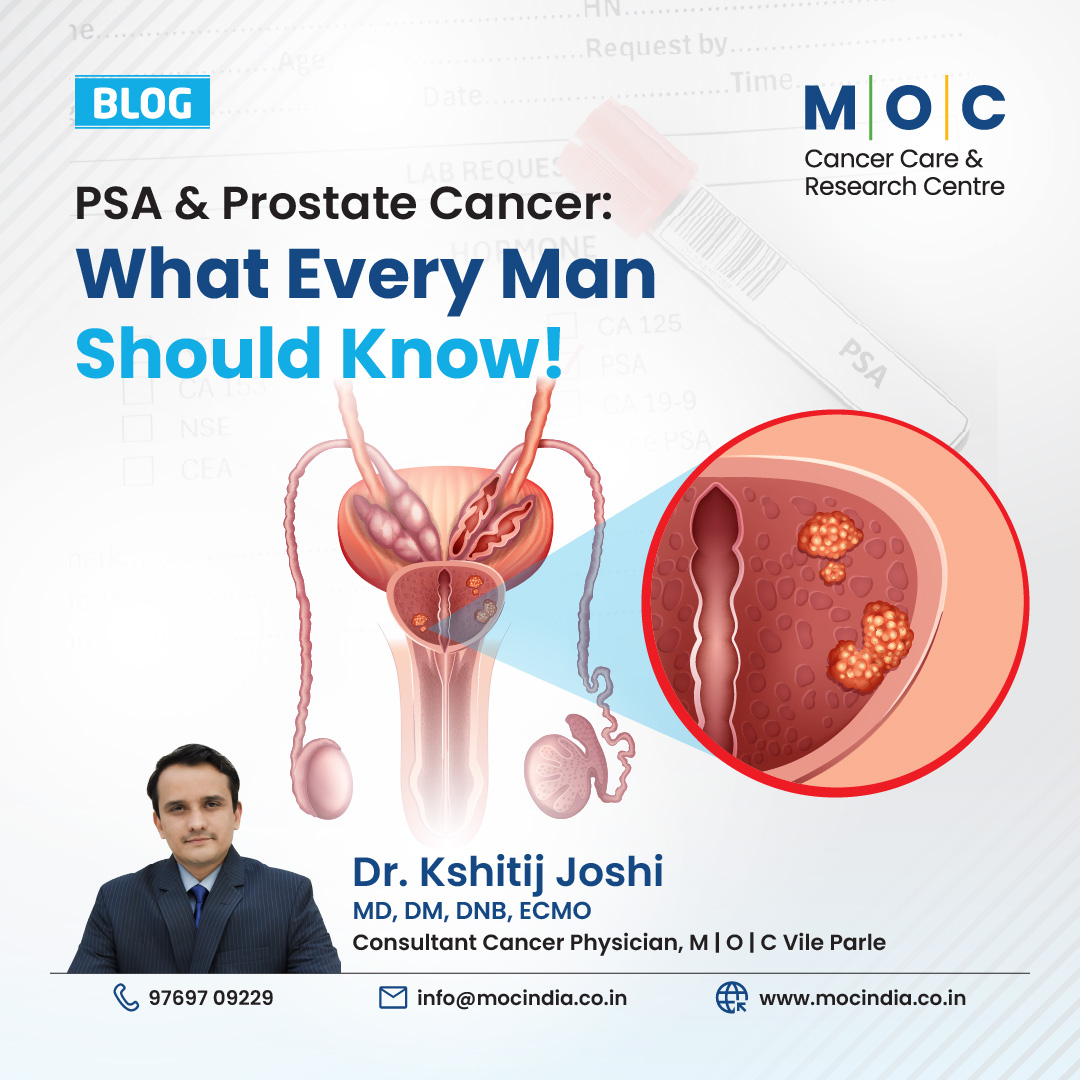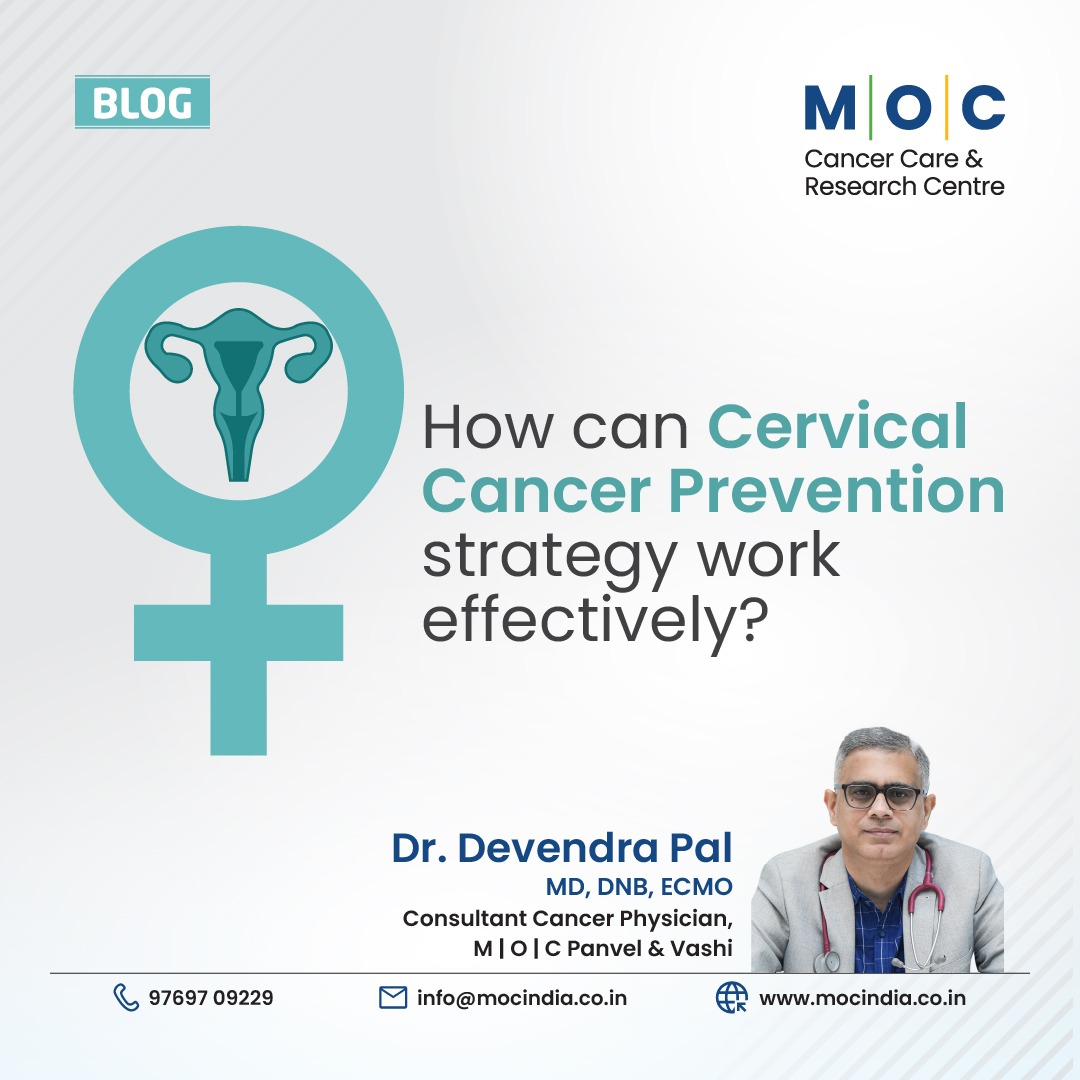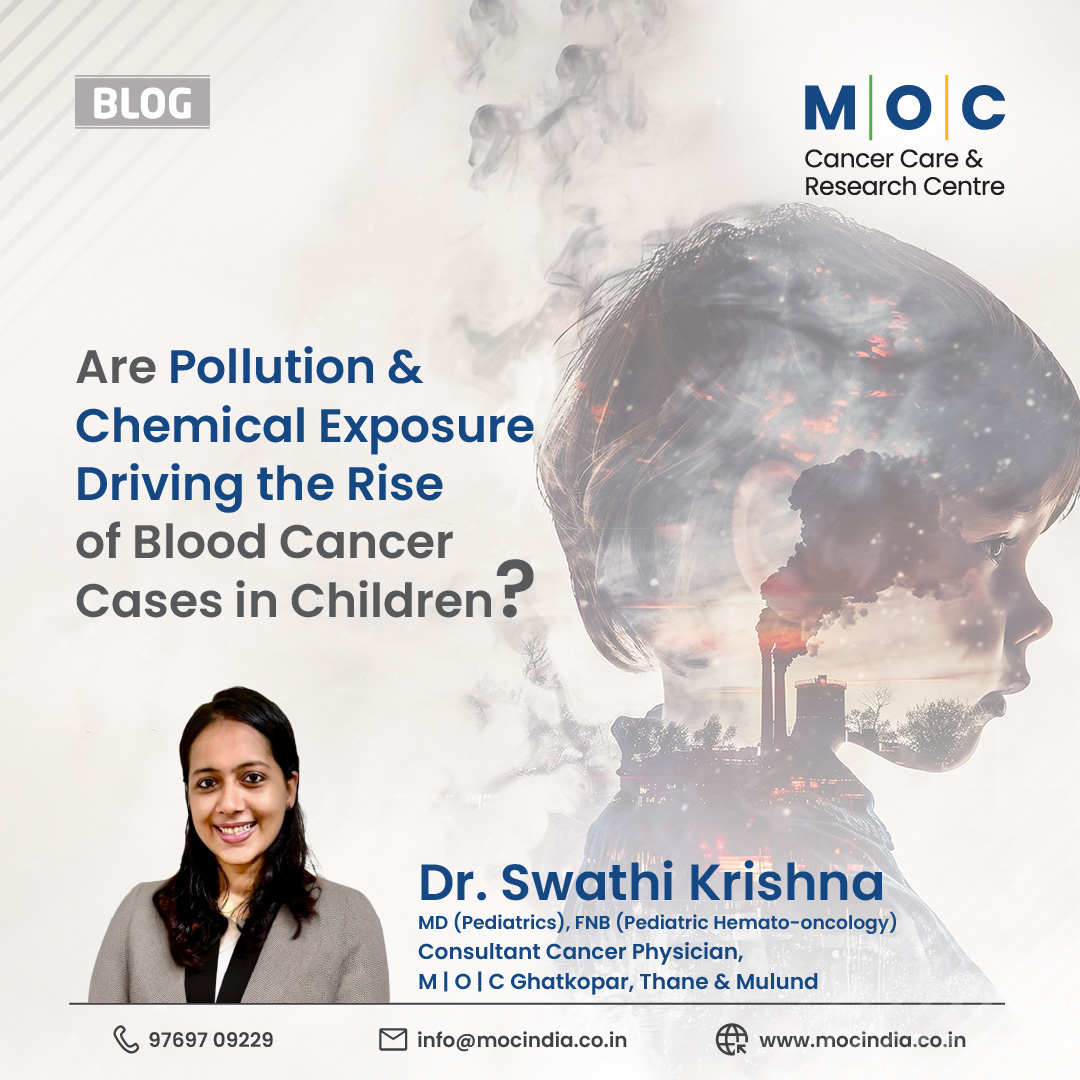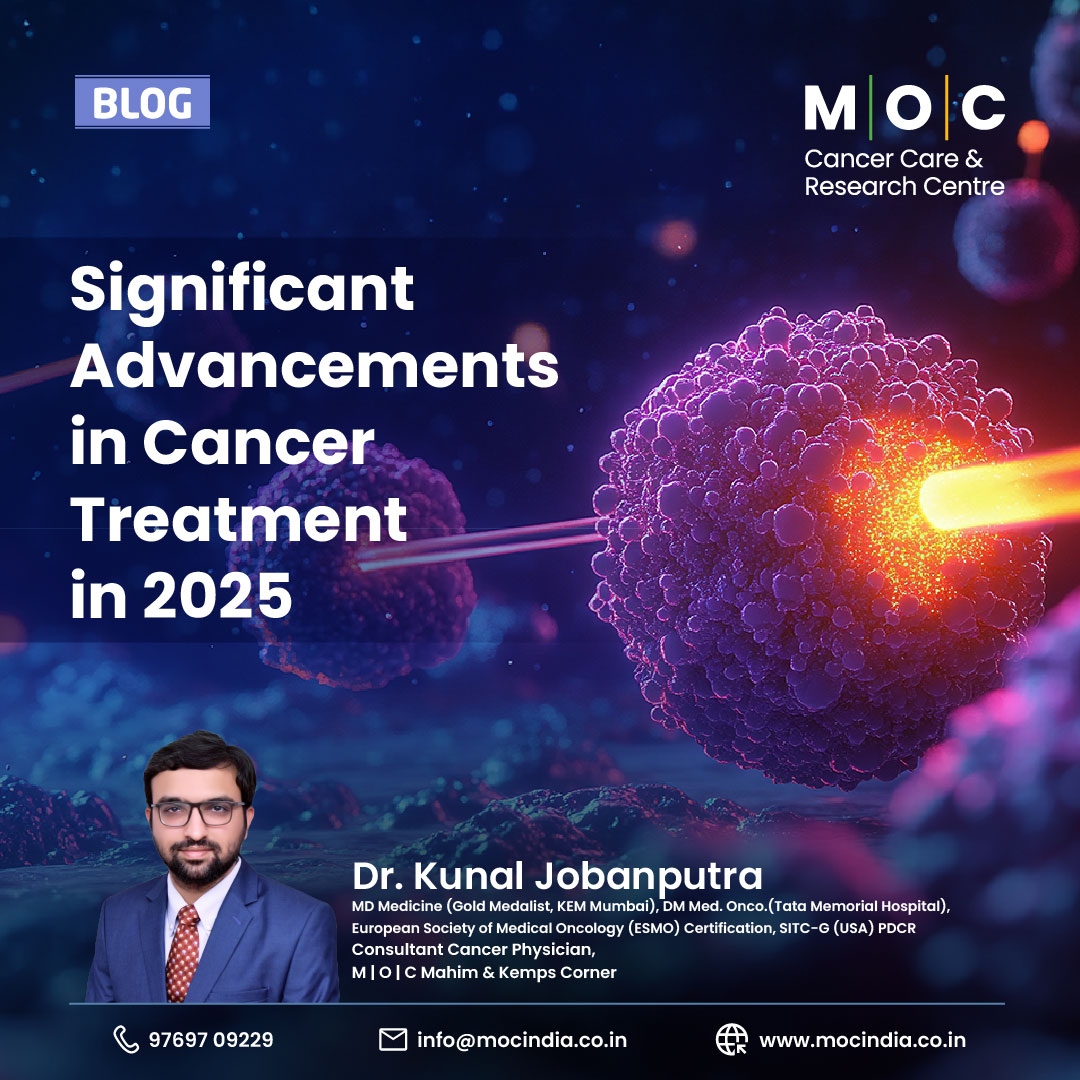PSA and Prostate Cancer: What Every Man Should Know!



Most of the men never heard about PSA until their doctor ordered it. Those who know about it call it a screening test and often dismiss it as unreliable.
What exactly is PSA? How can it help in prostate cancer prevention, diagnosis, treatment, and monitoring? And what should Indian men and their families know before saying “yes” or “no” to it?
What is PSA?
PSA is Prostate Specific Antigen, a protein made by the prostate gland. It naturally leaks into the blood, which is why doctors can measure it with a simple blood test. PSA levels can rise in many conditions, including:
- Benign (non-cancerous) prostate enlargement (common with age)
- Prostatic infections
- Recent medical procedures, or even vigorous cycling/ejaculation
- Prostate cancer
PSA is not a perfect “yes/no” cancer test but it’s more like a signal that needs context.
Role of PSA in Prevention & Early Detection of Prostate Cancer
- Globally: In the U.S. and Europe, men between 55–69 years are advised to make an individual choice about PSA testing after talking to their doctor. For men over 70, routine testing is not recommended.
- For high-risk men (family history, BRCA2 gene mutation, African ancestry), doctors sometimes suggest starting PSA checks earlier, around age 40–50.
- In India: There is no government-run population screening for prostate cancer. Men won’t get a PSA test automatically.
PSA can help detect prostate cancer early, but it should be done after discussion with a doctor, not as a random test for all men.
Let us understand the role of PSA in prostate cancer in more details.
PSA in Screening- “Screening” means testing people without symptoms.
Pros:
- Finds some cancers earlier, when treatment is easier.
- Reduces deaths from prostate cancer in some studies.
Cons:
- It can “over-detect” harmless cancers that never cause trouble.
- It can lead to unnecessary biopsies (which carry risks like infection).
- It may cause anxiety when PSA is borderline.
That’s why experts recommend a shared decision-making approach: understand the pros and cons before deciding if PSA screening is right for you.
Role of PSA in Diagnosis- If PSA comes high or rising:
- The doctor may repeat the test to confirm.
- Next step is often an MRI scan of the prostate.
- If MRI shows something suspicious, then a targeted biopsy is done.
Remember, PSA alone does not diagnose prostate cancer. It’s part of a step-wise process.
Role of PSA in Treatment Planning- Once prostate cancer is diagnosed, PSA helps answer important questions:
- How advanced is it? Higher PSA at diagnosis often means more aggressive or widespread cancer.
- What treatment is suitable? PSA is combined with biopsy results and scans to classify patients as low, intermediate, or high risk.
Doctors use this to decide whether to monitor, operate, or give radiotherapy/medicines.
Role of PSA in Monitoring (After Diagnosis)- This is where PSA becomes really powerful:
- After surgery (prostate removal): PSA should fall to almost undetectable. If it rises again, it may mean cancer is coming back.
- After radiotherapy: PSA should gradually decline. Rising PSA later may signal recurrence.
- During hormone therapy or chemotherapy: Falling PSA shows treatment is working; rising PSA suggests resistance or progression.
In short; once a man has prostate cancer, PSA is the simplest and most reliable marker to track the disease over time.
Simple Checklist for Men:-
- Ask your doctor before testing. Don’t do PSA “just to be safe” without guidance.
- If your PSA is high, don’t panic. Many non-cancer causes exist.
- If a biopsy is suggested, ask if an MRI-guided biopsy is possible.
- If diagnosed with cancer, keep a log of your PSA values over time. The trend is more important than a single number.
- If on treatment, use PSA as a tracker—but remember your doctor will always interpret it along with scans and symptoms.
Note for Readers- This article is for awareness only. PSA testing and prostate cancer decisions should always be made with a qualified doctor.
Dr. Kshitij Chandrakant Joshi
M.D,D.M,DNB,ECMO
Consultant Cancer Physician
MOC Cancer Care & Research Centre, Vile Parle.
Latest Blogs
-
![Nidar Naari is a movement initiated by M|O|C Cancer Care & Research Centre]()

- 10th Feb, 2026
- Nidar Naari is a movement initiated by M|O|C Cancer Care & Research Centre
-
![Cervical Cancer Awareness Month- January 2026]()

- 23rd Jan, 2026
- Cervical Cancer Awareness Month- January 2026
-
![Why Vaccinating Boys Against HPV is a Win for Everyone ?]()

- 20th Jan, 2026
- Why Vaccinating Boys Against HPV is a Win for Everyone ?
-
![Are Pollution and Chemical Exposure Driving the Rise of Blood Cancer Cases in Children?]()

- 17th Jan, 2026
- Are Pollution and Chemical Exposure Driving the Rise of Blood Cancer Cases in Children?
-
![Significant Advancements in Cancer Treatment in 2025- Dr Kunal Jobanputra- M|O|C Kemps Corner and Mahim]()

- 12th Jan, 2026
- Significant Advancements in Cancer Treatment in 2025- Dr Kunal Jobanputra- M|O|C Kemps Corner and Mahim
-
![Managing sleep disturbances during and after cancer treatment]()

- 11th Dec, 2025
- Managing sleep disturbances during and after cancer treatment
Book Your Appointment








